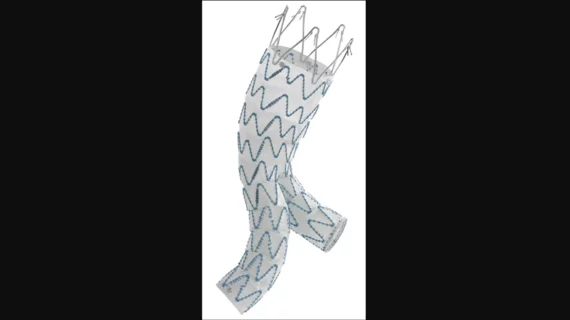Medtronic enrolls first patient for head-to-head EVAR study
Medtronic has announced that patient enrollment is officially underway for a new head-to-head global study comparing the company’s Endurant II/IIs stent graft system with Gore Medical’s Excluder AAA systems.
The ADVANCE trial is expected to enroll at least 550 patients from as many as 50 different facilities all over the world. Patients will be randomized to be undergo endovascular aneurysm repair (EVAR) for abdominal aortic aneurysms (AAAs) with either an Endurant device or an Excluder device. Each patient will be examined at one month, one year and then annually for a total of five years. The study is focused on gaining new insights into the importance of sac regression when treating a patient’s AAA with EVAR. CT imaging results will also play a key role in the evaluation of these two devices.
The first patient enrolled for the ADVANCE trial was treated at Novant Health Forsyth Medical Center in Winston-Salem, North Carolina.
“Through the ADVANCE Trial, we are working to deepen our evidence of sac regression as a key indicator of long-term EVAR patient outcomes,” Hence Verhagen, MD, PhD, a professor of vascular surgery at Erasmus University Medical Center in Rotterdam, Netherlands, and co-principal investigator of the ADVANCE trial, said in a prepared statement. “Our hope is that the findings will allow physicians to make evidence-based clinical decisions to improve long-term patient outcomes.”
“We are pleased to announce the first patient enrolled in the ADVANCE Trial,” added co-principal investigator Marc Schermerhorn, MD, chief of vascular and endovascular surgery at Beth Israel Deaconess Medical Center in Boston, Massachusetts. “This milestone underscores the commitment to rigorous study of the long-term data around the durability of the Endurant system for patients in need of EVAR. The results of the trial aim to demonstrate contemporary outcomes and our overarching goal to deliver superior aortic patient care through robust and rigorous clinical data.”

